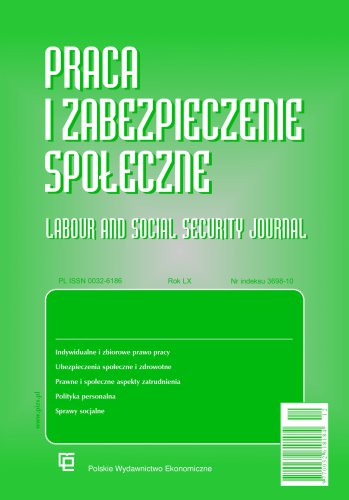Labour and Social Security Journal 7/2020
ISSN: 0032-6186
Pages: 52
Publication date: 2020
Place publication: Warszawa
Binding: paperback
Format: A4
Publication date: 2020
Place publication: Warszawa
Binding: paperback
Format: A4
DOI: 10.33226/0032-6186.2020.7.1
JEL: K31
DOI: 10.33226/0032-6186.2020.7.2
JEL: K31
DOI: 10.33226/0032-6186.2020.7.3
JEL: K39
DOI: 10.33226/0032-6186.2020.7.4
JEL: J41
DOI: 10.33226/0032-6186.2020.7.5
JEL: K31
DOI: 10.33226/0032-6186.2020.7.6
JEL: I38
DOI: 10.33226/0032-6186.2020.7.7
JEL: K31
DOI: 10.33226/0032-6186.2020.7.8
JEL: K31
DOI: 10.33226/0032-6186.2020.7.9
| Odbiór osobisty | 0 € |
| Kurier Inpost | 4 € |
| Kurier FedEX | 4 € |
| Inpost Paczkomaty | 4 € |
| Free delivery in Reader's Club | from 47 € |

